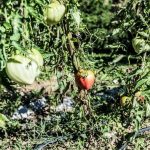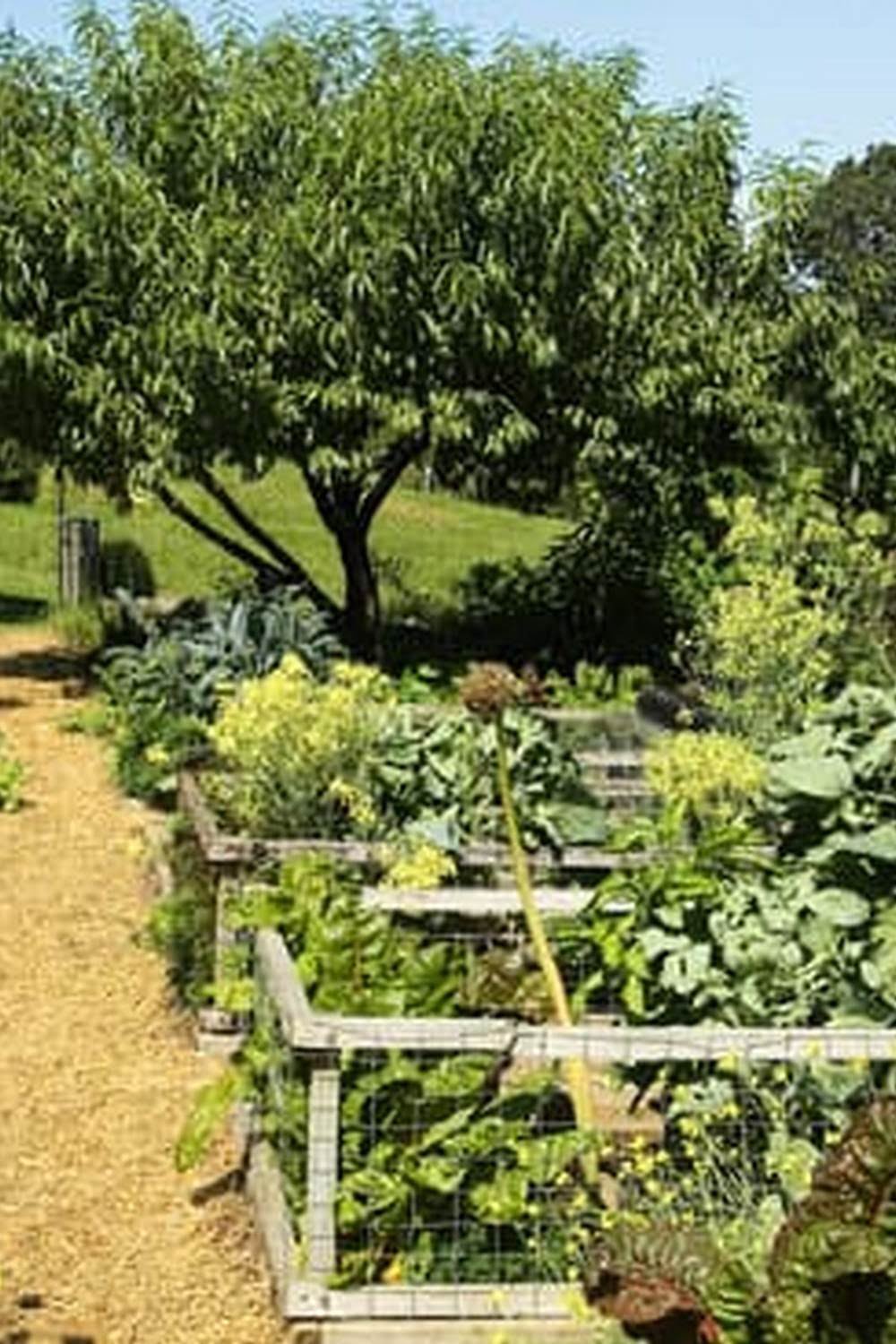Glyphosate, a widely used herbicide, has been a staple in the agricultural industry for decades. Its effectiveness in controlling weeds has made it a go-to product for farmers and gardeners alike. However, as concerns about its potential residual effects on soil and crops continue to emerge, the question of “does glyphosate have residual effects on vegetable gardens” becomes increasingly important.
Glyphosate, commonly known by brand names such as Roundup, is a non-selective herbicide that effectively targets a wide range of weeds. Its use in agriculture dates back to the 1970s and has since become one of the most widely used herbicides in the world. From large-scale farming operations to backyard gardening, glyphosate has found its way into various aspects of crop cultivation and plant maintenance.
While glyphosate’s efficiency in weed control is undeniable, there are growing concerns about its potential long-term impact on soil health and crop quality. Research on the residual effects of glyphosate on soil indicates that it may have adverse effects on beneficial microorganisms and overall soil health. As a result, the use of glyphosate in vegetable gardens has raised questions about its potential risks to the health of vegetables and fruits.
In this article, we will delve into the potential residual effects of glyphosate on vegetable gardens and explore ways to minimize its presence in garden soil. From discussing research findings to examining regulatory standards for glyphosate residues in vegetables, we aim to provide insights into this pressing issue for vegetable gardeners and consumers. Let’s take a closer look at this complex topic and shed light on the implications of glyphosate use in agriculture.
Residual Effects of Glyphosate on Soil
Glyphosate, a widely used herbicide in agriculture, has raised concerns about its residual effects on soil. When glyphosate is applied to the soil, it can interact with the microbial community and impact soil health. Research has shown that glyphosate residues may persist in the soil for an extended period of time, potentially affecting long-term soil fertility and the balance of beneficial microorganisms.
Some of the residual effects of glyphosate on soil include:
- Disruption of microbial activity: Glyphosate has been found to inhibit the growth of certain beneficial microorganisms in the soil, which play a crucial role in nutrient cycling and overall soil health.
- Soil compaction: Glyphosate residues may contribute to soil compaction, reducing its ability to retain water and support healthy plant growth.
- Impact on earthworms and other organisms: Studies have indicated that glyphosate residues can negatively affect earthworm populations and other soil-dwelling organisms essential for maintaining a balanced ecosystem.
In light of these potential residual effects, it is important for gardeners and farmers to consider alternative weed control methods and adopt best practices to minimize the use of glyphosate in their gardening activities. By implementing sustainable and organic practices, it is possible to mitigate the long-term impact of glyphosate on soil health.
Glyphosate and Vegetable Gardens
Glyphosate, a widely used herbicide in agriculture, has raised concerns about its potential residual effects on vegetable gardens. When glyphosate is applied to soil, it can interact with the microbial community and impact the health of the soil. Research has shown that glyphosate residues can persist in the soil for an extended period, affecting beneficial microorganisms and potentially impacting the growth of vegetables and fruits.
The application of glyphosate in nearby agricultural fields or lawns can also pose a risk to vegetable gardens through the transfer of residues. Glyphosate may be carried by wind or water runoff onto garden plots, leading to unintended exposure. This has prompted gardeners to consider the potential risks associated with glyphosate residues on their produce and take measures to minimize contamination.
In addition, studies have found glyphosate residues on various food items, including vegetables. This has raised concerns about the potential health risks associated with consuming food products containing glyphosate residues. While regulatory standards exist for acceptable levels of glyphosate residues in food, some consumers remain wary of its long-term effects on human health when continuously exposed through dietary intake.
| Glyphosate Residue | Impact |
|---|---|
| Potential impact on soil microbial community | Affects beneficial microorganisms |
| Risk of unintended transfer to vegetable gardens | Pose contamination risk from nearby applications |
| Concerns about health risks from consuming produce with glyphosate residues | Potential long-term effects on human health |
Health Concerns and Glyphosate Residues
Glyphosate, a widely used herbicide in agriculture, has raised concerns about potential health risks associated with its residues on vegetables. Research findings have indicated the presence of glyphosate residues in food, prompting discussions about the safety of consuming vegetables with traces of the herbicide. While regulatory standards and guidelines exist for glyphosate residues in vegetables, the debate over its impact on human health continues.
Studies have suggested that glyphosate residues on vegetables may pose potential health risks to consumers. These residues could accumulate in the body over time and have been linked to a range of health issues, including disruption of the endocrine system and potential carcinogenic effects. As a result, there is growing interest in understanding the long-term implications of consuming vegetables with glyphosate residues and exploring ways to minimize exposure.
In response to the concerns surrounding glyphosate residues on vegetables, there is a need for further research and monitoring to assess the potential health impact on consumers. Additionally, efforts should be made to raise awareness among vegetable gardeners about the importance of minimizing glyphosate use and exploring alternative weed control methods to ensure the safety and quality of homegrown produce.
As more information becomes available, it is crucial for regulators and policymakers to consider the implications for vegetable gardens and establish guidelines that prioritize consumer health.
Ways to Minimize Glyphosate Residues in Vegetable Gardens
Glyphosate residues in vegetable gardens can be a concern for many gardeners, especially those who are mindful of the potential health risks associated with this chemical. While glyphosate is commonly used as a weed killer in agricultural and gardening settings, there are steps that can be taken to minimize its presence in vegetable gardens. By implementing the following strategies, gardeners can work towards reducing glyphosate exposure and promoting a healthier growing environment for their vegetables:
- Choose Certified Organic Soil and Compost: Opting for certified organic soil and compost can help ensure that these materials are free from glyphosate contamination.
- Rotate Crops: Implementing a crop rotation plan can help minimize the build-up of glyphosate residues in the soil over time, as different crops have varying susceptibility to residual effects.
- Practice Mulching: Using mulch in vegetable gardens can help suppress weed growth without the need for herbicides like glyphosate.
In addition to these proactive measures, gardeners may also consider exploring alternative weed control methods that do not involve the use of glyphosate. This can include manual weeding, using natural or organic herbicides, or employing mechanical methods such as hoeing or cultivating. By diversifying weed management strategies, gardeners can reduce their reliance on glyphosate and minimize its impact on their vegetable gardens.
Ultimately, being aware of how glyphosate may enter the vegetable garden environment is crucial for taking preventative action. Whether it’s through contaminated water sources, drift from neighboring agricultural areas, or unintentional use of glyphosate-containing products, understanding the potential pathways of glyphosate exposure can empower gardeners to make informed decisions about managing their vegetable gardens in a way that minimizes glyphosate residues.
Case Studies and Research Findings
Impact on Vegetable Growth
Several studies have been conducted to assess the impact of glyphosate residues on vegetable gardens. One notable study published in the Journal of Agricultural and Food Chemistry found that certain vegetables, such as carrots and lettuce, showed reduced growth in the presence of glyphosate residues in the soil.
The research suggested that glyphosate may inhibit the uptake of essential nutrients by plant roots, leading to stunted growth and lower crop yields. This indicates a potential risk for vegetable gardeners who use glyphosate-based products for weed control.
Residue Levels in Vegetables
Research findings have also shed light on the presence of glyphosate residues in vegetables grown in contaminated soil. A study conducted by the Environmental Working Group (EWG) analyzed samples of various vegetables from grocery stores and farmers’ markets and detected glyphosate residues in a significant percentage of the samples. This raises concerns about the potential exposure of consumers to glyphosate through the consumption of contaminated vegetables.
Long-Term Effects
Long-term studies have delved into the lasting effects of glyphosate residues on vegetable gardens. A research project spanning several years, led by agronomists at a major university, observed changes in soil composition and microbial activity in vegetable plots treated with glyphosate.
The results indicated a decrease in beneficial microorganisms such as mycorrhizal fungi, which play a crucial role in nutrient uptake by plants. These findings highlight the need for further investigation into the long-term consequences of using glyphosate in vegetable gardens.
Overall, these studies underscore the importance of understanding the potential residual effects of glyphosate on vegetable gardens and emphasize the need for informed decision-making when it comes to herbicide use in agricultural practices. Ongoing research is critical for developing sustainable methods that minimize harm to both soil health and human health.
Regulatory Landscape on Glyphosate Use
The use of glyphosate in agriculture and gardening has been a topic of great debate and concern in recent years. In response to these concerns, regulatory bodies have implemented various regulations and restrictions on the use of glyphosate. These regulations aim to ensure the safe and responsible use of glyphosate in vegetable gardens and farming practices.
Current Regulations and Restrictions
In the United States, the Environmental Protection Agency (EPA) is responsible for regulating the use of glyphosate. The agency sets limits on the amount of glyphosate residue allowed in food products, including vegetables. Additionally, certain states may have their own regulations regarding the use of glyphosate in gardening and farming.
Internationally, organizations such as the European Food Safety Authority (EFSA) and the World Health Organization (WHO) also play a role in setting standards for glyphosate use. These regulatory bodies assess the safety of glyphosate and establish guidelines for its maximum residue levels in food products.
Debate Surrounding Safety
Despite existing regulations, there continues to be a heated debate surrounding the safety of glyphosate for use in vegetable gardens. Advocacy groups and environmental organizations often raise concerns about potential health risks associated with glyphosate residues on vegetables. On the other hand, proponents argue that when used according to regulations, glyphosate poses minimal risk to human health.
It is important for vegetable gardeners to stay informed about the current regulatory landscape surrounding glyphosate use. Being aware of any changes or updates to regulations can help gardeners make informed decisions about using herbicides containing glyphosate in their gardens. Additionally, staying informed about this topic can also aid gardeners in implementing best practices for minimizing any potential risks associated with glyphosate residues on their homegrown produce.
Conclusion
In conclusion, the use of glyphosate in agriculture has raised concerns about its potential residual effects on vegetable gardens. Research has shown that glyphosate can interact with soil, potentially affecting its health and the microorganisms within it. This raises questions about how glyphosate may impact the health of vegetables and fruits grown in contaminated soil, as well as the potential risks for consumers due to the presence of glyphosate residues in food.
Despite regulatory standards and guidelines for glyphosate residues in vegetables, there is a need for further research and precautionary measures to minimize the impact of glyphosate on vegetable gardens. Gardeners are encouraged to explore alternative weed control methods and adhere to best practices for preventing glyphosate contamination in garden soil. Ultimately, a proactive approach is necessary to ensure the safety and quality of vegetables grown in home gardens and consumed by individuals and families.
In light of the ongoing debate surrounding the safety of glyphosate for vegetable gardens, it is essential for both researchers and regulators to continue examining the potential residual effects of this herbicide. By staying informed about the latest findings and taking steps to minimize exposure to glyphosate, vegetable gardeners can play a role in promoting safe and healthy practices within their own gardening endeavors.
Thus, while concerns persist regarding glyphosate residues in vegetable gardens, there is an opportunity for collective action towards mitigating these potential risks.
Frequently Asked Questions
Does Glyphosate Leave Residue in the Soil?
Glyphosate can leave residue in the soil, especially if it is used in large amounts or repeatedly over time. While glyphosate does break down in the soil, it may take several months or even years for the residue to degrade, depending on factors such as soil type and environmental conditions.
Can I Plant a Garden After Using Glyphosate?
It is generally recommended to wait before planting a garden after using glyphosate. The specific waiting period can vary depending on the formulation of glyphosate used, but typically it’s best to wait at least a few days to a couple of weeks before planting.
This allows the chemical to break down and disperse in the soil, reducing the risk of impacting newly planted vegetation.
How Long Does Glyphosate Stay Active?
Glyphosate stays active for a variable amount of time, with factors like weather conditions and soil type influencing its persistence. In general, glyphosate’s activity decreases over time as it degrades in the soil.
However, its half-life can range from days to months depending on these factors. It’s important to follow product labels and guidelines for re-application based on the intended use and control of target vegetation.

If you’re looking to get into vegetable gardening, or are just looking for some tips on how to make your current garden better, then you’ve come to the right place! My name is Ethel and I have been gardening for years. In this blog, I’m going to share with you some of my best tips on how to create a successful vegetable garden.





